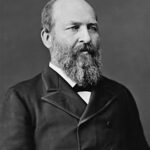Garfield’s Vision for Universal Education
President James A. Garfield entered office in March 1881 with unwavering commitment to civil rights. His administration prioritized federal funding for universal education across the nation. 📊 Garfield believed education was the foundation of American democracy and progress.
The president championed the Blair Education Bill concept before its formal introduction. This legislation would provide federal aid to states for public education. Garfield argued that educated citizens were essential for national unity and economic growth.
Defending Voting Rights During Reconstruction’s End
⚠️ Garfield faced mounting pressure as Reconstruction policies weakened across the South. White supremacist groups increasingly threatened African American voting rights. The president firmly opposed any retreat from constitutional protections.
His administration worked to enforce the Fifteenth Amendment guaranteeing voting rights. Garfield appointed African Americans to federal positions, demonstrating his commitment to equality. He believed federal intervention was necessary to protect constitutional rights.
Impact:
Immediate Political Consequences
Garfield’s civil rights stance drew fierce opposition from Southern Democrats and conservative Republicans. 🔥 His assassination in July 1881 prevented full implementation of his educational policies. However, his moral leadership inspired future civil rights advocates.
The president’s brief tenure established important precedents for federal education funding. His appointments of African Americans to government positions challenged existing discrimination. These actions laid groundwork for later civil rights developments.
Long-term Historical Significance
📉 Garfield’s death marked a turning point in Reconstruction’s decline. His successor, Chester Arthur, lacked the same commitment to civil rights enforcement. The president’s educational vision eventually influenced Progressive Era reforms.
Historians praise Garfield’s moral courage during a period of growing racial hostility. His advocacy for universal education became a cornerstone of American educational policy. The president’s brief but principled leadership demonstrated the potential for federal action on civil rights issues.
